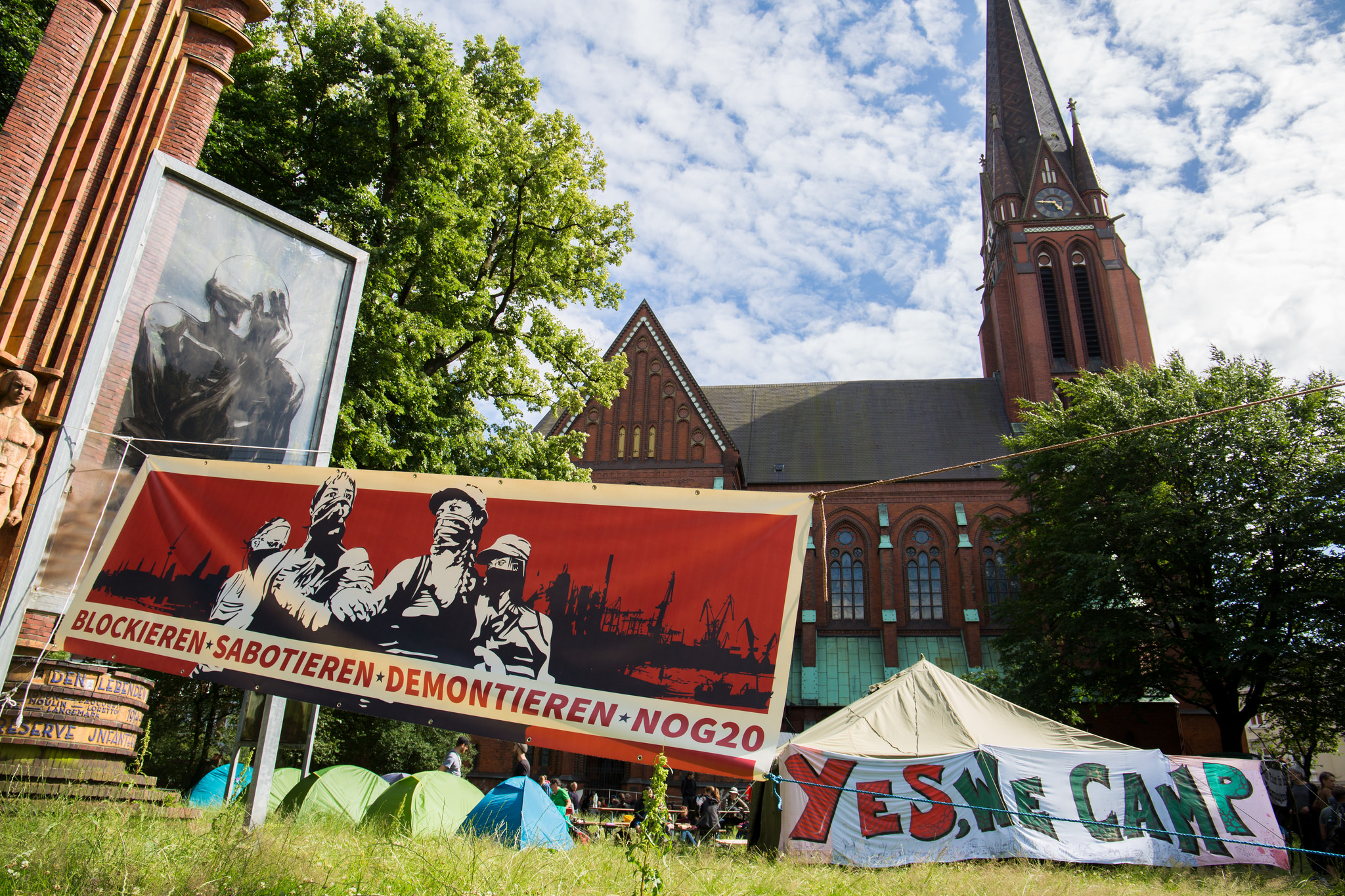With the G20 leaders leaving Hamburg on Saturday evening, the city slowly started to return to normal. Stray bands of protesters ate fast food while waiting for trains home at Hamburg’s main station. Outside, in the parking lot, police forces stripped their riot gear off. After the logistical challenges of the summit, protests that shut down parts of the city, and a huge and costly police operation, everyone is asking: was it worth it?
There’s a lot to break down.
Our team at Oxfam came here with inequality at the top of the agenda. Unfortunately, as we predicted, the G20 gave a thumbs-up to the OECD’s ridiculous tax haven “blacklist of one.” To call this a “win” on international tax co-operation would be to set the bar at ground level.
We also looked for any urgency or action from the G20 to provide help right away to the millions of lives in danger among the “four famines.” The United States came through with funds that, in our quick estimate, would equal their “fair share” of what the United Nations and other agencies are asking for. This means they were just the fourth country out of those attending this year’s summit to meet their “fair share,” behind the United Kingdom, the Netherlands, and Germany.
However, the G20 missed another opportunity to do serious groundwork to help bring an end to the conflicts that are fueling these crises. Until a lasting solution to the conflicts is reached, I worry that the relief will be short-lived.
The “Compact with Africa,” a part of the much-hyped G20 Africa Partnership, was another source of concern for our team. By pushing an initiative where African countries vie for bilateral, private investment deals, is the G20 encouraging a “race to the bottom?” Private investment doesn’t automatically help local communities. There’s a lot to this initiative that we’ll have to analyze further in coming months.
It was climate that caused the most tension. After hours of fractious negotiations that lasted until 3 a.m., an agreement of sorts was reached. But while the other 19 members defended the Paris Agreement as “irreversible,” President Trump stubbornly insisted on propping up the fossil fuel industry — leaving him isolated and stuck in the past.
The news from the summit was not all bad. The G20 Hamburg Climate and Energy Action plan that 19 countries have endorsed makes positive steps in the right direction, such as pointing at the need to align financial flows with the Paris Agreement. Commitments were made on women’s empowerment, though the G20 must not just measure labour force participation, but take action to increase women’s employment in quality jobs. Proper attention to the root causes of inequality and the broader issues that affect women’s rights and participation in the economy is still needed.
So: Was it all worth it? The cost of the summit was huge, so the benefits to the world need to be significant. Only if there is real progress in the coming months on climate, poverty, inequality and women’s rights can we say the answer is yes.
Steve Price-Thomas is Oxfam International’s Director of Advocacy and Campaigns.
Image: Flickr/rasande
Like this article? Please chip in to keep stories like these coming.




